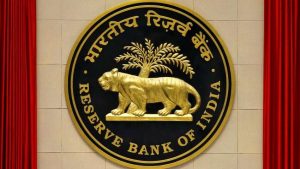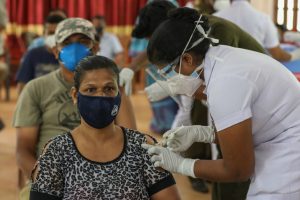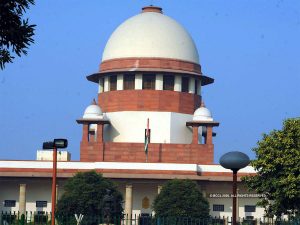Today Current Affairs: 6th May 2021 for UPSC IAS exams, State PSC exams, SSC CGL, State SSC, RRB, Railways, Banking Exam & IBPS, etc
Table of Contents
Global Innovation Partnership (GIP):

The Union Cabinet has given ex-post facto approval to the signing of MoU between the Ministry of External Affairs of India and Foreign, Commonwealth, and Development Office (FCDO) of the United Kingdom on Global Innovation Partnership (GIP)
- Through this MoU, India, and UK agree to launch the Global Innovation Partnership.
- GIP will support Indian innovators to scale up their innovations in third countries thereby helping them explore new markets and become self-sustainable.
- It will also foster the innovation ecosystem in India.
- GIP innovations will focus on Sustainable Development Goals (SDG) related sectors thereby assisting recipient countries to achieve their SDGs.
- Through seed funding, grants, investments, and technical assistance, the Partnership will support Indian entrepreneurs and innovators to test, scale up and take their innovative development solutions to select developing countries.
- GIP will also develop an open and inclusive e-marketplace (E-BAAZAR) for cross-border innovation transfer and will focus on results-based impact assessment thereby promoting transparency and accountability.
Measures To Support The Nation: RBI:

The RBI Governor Shaktikanta Das announced a series of measures to support the nation’s fight against the second wave of COVID-19 infections.
- Term Liquidity Facility of Rs. 50,000 crore with tenure of up to 3 years, at repo rate, to ease access to emergency health services, for ramping up COVID-related health infrastructure & services.
- pecial Long Term Repo Operations for Small Finance Banks: In order to provide further support to micro, small, and other unorganized sector entities, 3-year repo operations of Rs. 10,000 crore at repo rate, for fresh lending up to Rs 10 lakh per borrower; the facility is available up to 31 October 2021.
- Lending by Small Finance Banks (SFBs) to MFIs for on-lending to be classified as priority sector lending: In view of fresh challenges, SFBs are now permitted to regard fresh on-lending to MFIs with asset size up to Rs. 500 crore, as priority sector lending. This facility will be available up to 31 March 2022.
- Credit flow to MSME Entrepreneurs: To further incentivize the inclusion of unbanked MSMEs into the banking system, the exemption provided in February 2021 wherein scheduled banks were allowed to deduct credit given to new MSME borrowers from Net Time & Demand Liabilities for calculation of CRR, is now extended to December 31, 2021.
- Rationalization of KYC norms for enhanced customer experience: Steps being proposed include –
- Extending scope to video KYC for new customer categories such as proprietorship firms,
- Conversion of limited KYC accounts to fully KYC compliant accounts,
- Introduction of more customer-friendly options in KYC updating and
- enabling the use of KYC Identifier of Centralised KYC Registry (CKYCR) for V-CIP and submission of electronic documents as identify proof
- Floating Provisions and Countercyclical Provisioning Buffer: Banks can now use 100% of floating provisions held by them, as on December 31, 2020, for making specific provisions for NPAs; such utilization is permitted up to March 31, 2022.
- Relaxation of overdraft facility for states: Maximum number of days of overdraft in a quarter for state governments has been increased from 36 to 50 days. The number of consecutive days of OD has been increased from 14 to 21 days; facility available up to September 30, 2021.
RBI has announced the following set of measures to relieve stress faced by the most vulnerable categories of borrowers – namely individuals, borrowers, and MSMEs.
These are:
- Individuals, borrowers, and MSMEs with aggregate exposure up to Rs. 25 crore, who have not availed restructuring under any previous frameworks, who were classified as standard on 31 March 2021, will be eligible to be considered under Resolution Framework 2.0.
- Restructuring under the new framework can be invoked till September 30, 2021, and will have to be implemented within 90 days after invocation.
- For individuals and small businesses who have availed restructuring of loans under Resolution Framework 1.0, where a moratorium of fewer than 2 years was permitted, lending institutions can now increase the period and/or extend residual tenure up to a total period of 2 years.
- In respect of small businesses and MSMEs restructured earlier, lending institutions are now permitted to review working capital sanction limits, as a one-time measure.
Section 142 Of The Social Security Code, 2020:

Section 142 of the Social Security Code, 2020 has been notified by the Ministry of Labour & Employment covering the applicability of Aaadhar.
- The notification of the section will enable the Ministry of Labour and Employment to collect Aaadhar details for the database of beneficiaries under various social security schemes.
- National Data Base for unorganised workers (NDUW) is at an advanced stage of development by National Informatics Centre.
- The portal is aimed at the collection of data for unorganised workers including migrant workers for the purpose of giving benefits to the various schemes of the Government.
- An inter-state migrant worker can register himself on the portal on the basis of submission of Aaadhar alone.
- Union Minister of State (I/c) for Labour and Employment Shri Santosh Gangwar has clarified that the section under the Social Security Code has been notified only for the collection of data of workers including migrant workers. No benefit will be denied to workers for want of Aaadhar.
A report Titled ‘State Of Working India 2021: One Year Of Covid19:

A report titled ‘State of Working India 2021: One Year of Covid19’ brought out annually by Azim Premji University’s Centre for Sustainable Employment, Bengaluru has been released.
- The report covers the period March 2020 to December 2020, dwells on the impact of one year of Covid-19 on employment, incomes, inequality, and poverty.
Impact on Employment:
- 100 million jobs were lost during the April-May 2020 lockdown.
- Though most of these workers had found employment by June 2020, about 15 million remained out of work.
Impact on Income:
- For an average household of four members, the monthly per capita income in October 2020 (Rs. 4,979) was still below its level in January 2020 (Rs. 5,989).
- Monthly earnings of workers fell on an average by 17% during the pandemic, with self-employed and informal salaried workers facing the highest loss of earnings.
In formalization:
- Post-lockdown, nearly half of salaried workers had moved into informal work, either as self-employed (30%), casual wage (10%), or informal salaried (9%).
Regressive Nature of Economic Impact:
- The bottom 20% of households earned nothing in the months of April and May 2020.
- On the other hand, the top 10% suffered the least during the lockdown, and only lost about 20% of their February income during the lockdown months.
Disproportionate Impact on Women:
- During the lockdown and in the post lockdown months, 61% of working men remained employed while 7% lost their job and did not return to work.
- But in the case of women, only 19% remained employed while 47% suffered a permanent job loss, “not returning to work even by the end of 2020”.
Increase in Poverty Rate:
- The job loss and fall in earnings caused a large increase in poverty.
- Households coped with the loss of income by decreasing their food intake, selling assets, and borrowing informally from friends, relatives, and moneylenders.
- With 230 million falling below the national minimum wage threshold of Rs. 375 per day during the pandemic, the poverty rate has “increased by 15 percentage points in rural and nearly 20 percentage points in urban areas”.
Export Of Organic Millets:

In a major boost to exports of organic products from the country, the first consignment of millets grown in the Himalayas would be exported to Denmark.
- APEDA (Agricultural and Processed Food Products Export Development Authority) has sourced ragi (finger millet), and jhingora (barnyard millet) from farmers in Uttarakhand for exports.
- At present, organic products are exported provided they are produced, processed, packed and labelled as per the requirements of the National Programme for Organic Production (NPOP).
National Programme for Organic Production (NPOP):
- The NPOP has been implemented by APEDA since its inception in 2001 as notified under the Foreign Trade (Development and Regulations) Act, 1992.
- NPOP covers standards for crops and their products, live stocks and poultry products, aquaculture, apiculture etc. The exports from the country are as per the provisions in NPOP.
- The NPOP certification has been recognized by the European Union and Switzerland which enables India to export unprocessed plant products to these countries without the requirement of additional certification.
- It also facilitates export of Indian organic products to the United Kingdom even in the post Brexit phase.
- NPOP has also been recognized by the Food Safety Standard Authority of India (FSSAI) for trade of organic products in the domestic market.
- Organic products covered under the bilateral agreement with NPOP need not to be recertified for import in India.
Organic Farming:
- According to FSSAI, ’organic farming is a system of farm design and management to create an ecosystem of agriculture production without the use of synthetic external inputs such as chemical fertilisers, pesticides and synthetic hormones or genetically modified organisms.
- Related Initiatives:
- Mission Organic Value Chain Development for North East Region (MOVCDNER).
- Paramparagat Krishi Vikas Yojana (PKVY), etc.
- The Indian state of Sikkim achieved the feat of being the world’s first organic state and was awarded the UN Future Policy Gold Award 2018, also known as the Oscar for best policies.
Support For Waiving Intellectual Property (IP) Protection For Covid-19 Vaccines:

The United States has announced the support for waiving Intellectual Property (IP) protection for Covid-19 vaccines.
- The decision is a breakthrough in India and South Africa’s attempts to get World Trade Organisation (WTO) member countries to agree to such a waiver to fight the pandemic equitably.
- The 1995 agreement on Trade-Related Aspects of Intellectual Property Rights (TRIPS) requires ratifying countries to adopt a minimum standard of intellectual property rights to protect creators and promote innovation.
- India and South Africa have proposed a waiver from the implementation and application of certain provisions of the TRIPS Agreement (waiving IP rights like patents, copyright, and trademarks) for prevention, containment or treatment of Covid-19.
- If the waiver is granted, WTO member countries will not be under an obligation, for a temporary period, to either grant or enforce patents and other IP-related rights to Covid-19 drugs, vaccines, and other treatments.
- This will immunize the measures adopted by countries to vaccinate their populations from claims of illegality under WTO law.
Maratha Reservation Struck Down: SC:

A five-judge Constitution Bench of the Supreme Court has struck down the Maharashtra law granting reservation to the Maratha community in admissions and government jobs in the state.
- In November 2018, the Maratha community was given the reservation under the Maharashtra State Socially and Educational Backward Act.
- The special act was sanctioned by Maharashtra State Backward Class Commission and approved in both the assembly and council.
- The Maratha reservation of 12 and 13 percent (in education and jobs) had increased the overall reservation ceiling to 64 percent and 65 percent, respectively.
Judicial Intervention:
- Initially, the reservation under SEBC was challenged by a PIL in Bombay High Court. The Bombay High Court while upholding the reservation pointed that instead of 16 percent it should be reduced to 12 percent in education and 13 percent in jobs.
- Accordingly, the Act was implemented with Maratha students availing the quota in educational institutions and jobs.
- On September 9, 2020, the Maratha reservation confronted another hurdle as Supreme Court stayed its implementation and refer the case to the Chief Justice of India for the larger bench.
1992 Indira Sawhney Judgment:
- In the 1992 landmark ruling in Indra Sawhney v Union of India, in which the Mandal Commission report was upheld, the Court laid down two important precedents.
- First, it said that the criteria for a group to qualify for reservation is “social and educational backwardness”.
- Second, it reiterated the 50% limit to vertical quotas reasoning that it was needed to ensure “efficiency” in administration. However, the court said that this 50% limit will apply unless in “exceptional circumstances.”
The issues:
- The Maratha quota exceeded the 50% ceiling.
- The Court held that a separate reservation for the Maratha community violated Articles 14 (right to equality) and 21 (due process of law).
Maharashtra Government’s arguments:
- The Indra Sawhney verdict must be referred to an 11-judge Bench for reconsideration since it laid down an arbitrary ceiling that the Constitution does not envisage.
- Additionally, in some judgments subsequent to Indra Sawhney, the Supreme Court itself had made exceptions to this rule.
The court held that there is no need to revisit the case. The court said that the 50% ceiling, although an arbitrary determination by the court in 1992, is now constitutionally recognized.
- The Marathas are the dominant forward class and are in the mainstream of National life. Hence, the court observed that the above situation is not extraordinary.
The Constitution 102nd Amendment Act, 2018 gives constitutional status to the National Backward Classes Commission.
- The Amendment also gives the President powers to notify backward classes.
- Several states raised questions on the interpretation of the Amendment and argued that it curtails their powers.
- However, the Bench unanimously upheld the constitutional validity of the 102nd Amendment.
- The majority opinion also said that while the identification of SEBCs will be done centrally, state governments retain the power to determine the extent of reservation and make specific policy in the spirit of “cooperative federalism
IDBI Bank Ltd:

The Cabinet Committee on Economic Affairs has given its in-principle approval for strategic disinvestment along with transfer of management control in IDBI Bank Ltd.
- The extent of respective shareholding to be divested by GoI and LIC shall be decided at the time of structuring of the transaction in consultation with RBI.
- The government of India (GoI) and LIC together own more than 94% of the equity of IDBI Bank (GoI 45.48%, LIC 49.24%). LIC is currently the promoter of IDBI Bank with Management Control and GoI is the co-promoter.
- LIC’s Board has passed a resolution to the effect that LIC may reduce its shareholding in IDBI Bank Ltd. through divesting its stake along with strategic stake sale envisaged by the Govt. with an intent to relinquish management control and by taking into consideration price, market outlook, statutory stipulation and interest of policyholders.
- It is expected that strategic buyers will infuse funds, new technology, and best management practices for optimal development of business potential and growth of IDBI Bank Ltd. and shall generate more business without any dependence on LIC and Government assistance/funds.
- Resources through strategic disinvestment of Govt. equity from the transaction would be used to finance developmental programs of the Government benefiting the citizens.




